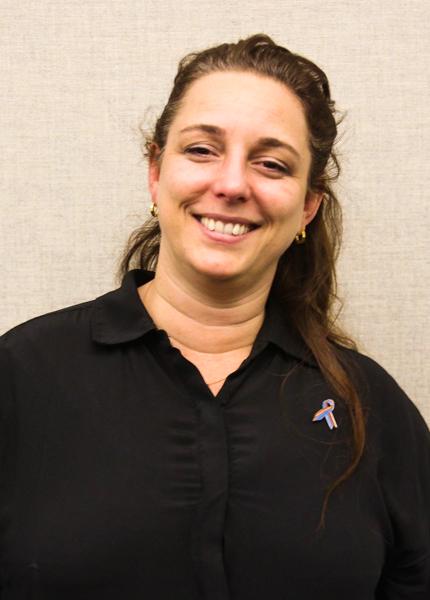On the Record with Tania Bruguera, activist and artist

Photo by Briana Santiago, Staff photographer
Performance artist and activist Tania Bruguera, who gave a lecture Wednesday at the Allen Memorial Art Museum.
April 1, 2016
Tania Bruguera is a political activist and performance artist hailing from Cuba. Her latest project, #YoTambienExijo (“I Also Demand”), involved the placement of a microphone in the middle of Revolution Square in Havana. The project, which is intended to give any interested person one minute of uncensored free speech on the microphone, is open to the public. Bruguera came to campus this week to speak on that project and on her concept “Political Timing Specific,” a tool of self-explanation used to orient and contextualize her work and that of other politically-minded artists. The Review sat down with Bruguera to discuss her recent projects, the nature of artistic judgment and the political potential of her work.
What brings you to Oberlin?
[Laughs.] Well, the history of Oberlin. Oberlin is quite well known for its history, so that was appealing. But also, as an artist, I feel it is important to go to as many colleges as possible. I’ve been a professor since 1992, so I’ve seen how important it is for young people to see options outside the mainstream and to see someone who has made a living. … I really want the work I’m doing to be for young people. Young people are the natural interlocutors of my work, in part because young people are more clear about wanting to be active citizens, especially on a college campus. I never bring a final sentence to a college campus. I just bring my work. We talk about it, and I have to be honest. Sometimes I have been challenged by people on college campuses, and they have made me rethink things, and that is a great privilege.
What is “Political Timing Specific”?
“Political Timing Specific” is a concept I created to talk about my work. One thing I encountered when I was doing my work was [that] art critics were talking about it, trying to dissect the work and deconstruct the work for others to understand. I felt a big tension between what I was doing and what the critics were saying I was doing. Given the fact English is not my first language, I had to find other ways to explain what I was doing. Then, I realized that I needed to create concepts. … Maybe we need to create our own concepts … as a tool of orientation for the critic. Many times, art critics use traditional art concepts when looking at something that is not traditional art. “Political Timing Specific” is saying that the content of the work and the need for the work to exist come out of political conditions. “Political Timing Specific” is about the urgency and agency that a piece of art has.
Are there any artistic expressions that are apolitical?
I don’t think so. I think even commercial art is political, because you have to take a stand towards who you are and what you’re doing this for. That’s a decision you’re making, and those decisions are political. Even if you make a decision not to engage, it is political. This is something I’ve found in capitalism in general, that there is a very, very important effort made to make people feel things are not political. And in socialism, the opposite is true: Everything is political.
What kind of dialogue came out of #YoTambienExijo? What was the result of a project like that?
I feel very honored and very happy as an artist to have done it. More than 20,000 Cubans abroad and on the island participated in it to talk about what was going on on the island. … It was people who had lost the faith in their political agency in Cuba and part of that is why they left. And part of that work brought them back and to say, “Okay, we have to do something,” and that was very emotional. The other thing is that … a lot of opposition groups and dissident groups decided to join in the same place, talking to people they didn’t talk to because of political reasons. Because this is an artwork, they were all aboard to do the piece. That’s big. And I think this is why it was so important. I think this is great.
The biggest outcome of it is people, especially people from the left who had this image of Cuba as revolutionary from the 1950s and ’60s in front of their eyes, [who have rethought] the way in which the government operates. [That’s] important for me because I am someone who identifies with the left, or a group like Occupy. For me, it was very hard to have a conversation with my friends about Cuba, because they wanted to use Cuba for their own purposes. They want to use Cuba as an example in their own country of why capitalism is bad, so they use Cuba as an example of, “Okay, we can be like this.” We have a lot of things that are great, but that doesn’t mean we can’t talk about what is wrong.
What do you think is the political potential of your performance art?
It’s hard for someone to answer that question and not look like an asshole [Laughs.] … The difficulty with political performance is you never know the outcome; it could be nothing, or it could be revolution. You never know, so you try. The artist might not change society on [their] own. But it’s the ecology, the emotional human ecology you can create.

























